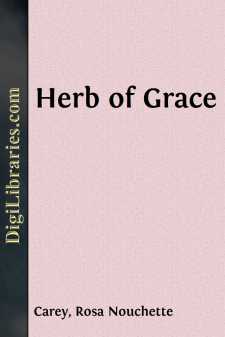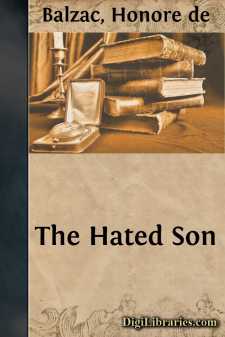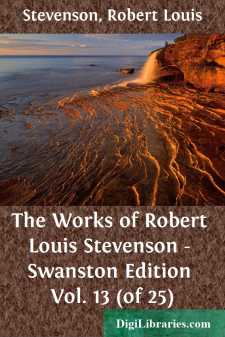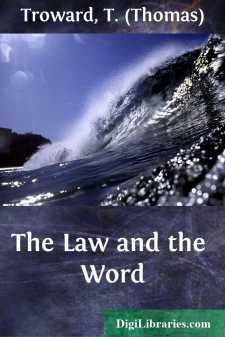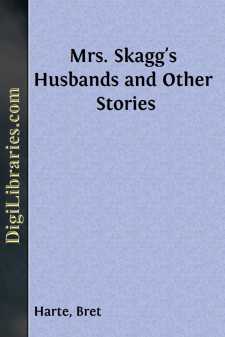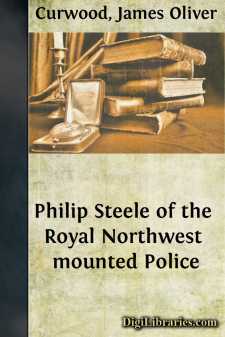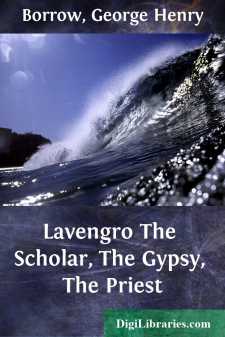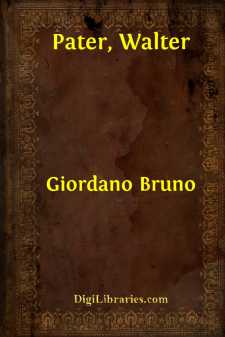Literary Collections
- American 84
- Ancient, Classical & Medieval 14
- Asian 1
- Australian & Oceanian 1
- Canadian 55
- Continental European 121
- English, Irish, Scottish, Welsh 179
- Essays 160
- General 24
- Letters 46
- Middle Eastern 1
Literary Collections Books
Sort by:
CHAPTER I Our adventures hover round us like bees round the hive when preparing to swarm.—MAETERLINCK. From boyhood Malcolm Herrick had been a lover of the picturesque. In secret he prided himself on possessing the artistic faculty, and yet, except in the nursery, he had never drawn a line, or later on spoilt canvas and daubed himself in oils under the idea that he was an embryo Millais or Turner....
more...
by:
Honore de Balzac
CHAPTER I. A BEDROOM OF THE SIXTEENTH CENTURY On a winter's night, about two in the morning, the Comtesse Jeanne d'Herouville felt such violent pains that in spite of her inexperience, she was conscious of an approaching confinement; and the instinct which makes us hope for ease in a change of posture induced her to sit up in her bed, either to study the nature of these new sufferings, or to...
more...
IN THE MARQUESAS It was about three o’clock of a winter’s afternoon in Tai-o-hae, the French capital and port of entry of the Marquesas Islands. The Trades blew strong and squally; the surf roared loud on the shingle beach; and the fifty-ton schooner of war, that carries the flag and influence of France about the islands of the cannibal group, rolled at her moorings under Prison Hill. The clouds...
more...
CHAPTER I If I were asked what, in my opinion, distinguishes the thought of the present day from that of a previous generation, I should feel inclined to say, it is the fact that people are beginning to realize that Thought is a power in itself, one of the great forces of the Universe, and ultimately the greatest of forces, directing all the others. This idea seems to be, as the French say, "in the...
more...
by:
Honore de Balzac
MELMOTH RECONCILED There is a special variety of human nature obtained in the Social Kingdom by a process analogous to that of the gardener's craft in the Vegetable Kingdom, to wit, by the forcing-house—a species of hybrid which can be raised neither from seed nor from slips. This product is known as the Cashier, an anthropomorphous growth, watered by religious doctrine, trained up in fear of...
more...
by:
Bret Harte
PART I—WEST. The sun was rising in the foot-hills. But for an hour the black mass of Sierra eastward of Angel's had been outlined with fire, and the conventional morning had come two hours before with the down coach from Placerville. The dry, cold, dewless California night still lingered in the long canyons and folded skirts of Table Mountain. Even on the mountain road the air was still sharp,...
more...
Chapter I. The Hyacinth Letter Philip Steele's pencil drove steadily over the paper, as if the mere writing of a letter he might never mail in some way lessened the loneliness. The wind is blowing a furious gale outside. From off the lake come volleys of sleet, like shot from guns, and all the wild demons of this black night in the wilderness seem bent on tearing apart the huge end-locked logs...
more...
In the following pages I have endeavoured to describe a dream, partly of study, partly of adventure, in which will be found copious notices of books, and many descriptions of life and manners, some in a very unusual form. The scenes of action lie in the British Islands;—pray be not displeased, gentle reader, if perchance thou hast imagined that I was about to conduct thee to distant lands, and didst...
more...
CHAPTER I. THE FOREIGNER AT HOME “This is no my ain house;I ken by the biggin’ o’t.” Two recent books one by Mr. Grant White on England, one on France by the diabolically clever Mr. Hillebrand, may well have set people thinking on the divisions of races and nations. Such thoughts should arise with particular congruity and force to inhabitants of that United Kingdom, peopled from so many...
more...
by:
Walter Pater
[234] IT was on the afternoon of the Feast of Pentecost that news of the death of Charles the Ninth went abroad promptly. To his successor the day became a sweet one, to be noted unmistakably by various pious and other observances; and it was on a Whit-Sunday afternoon that curious Parisians had the opportunity of listening to one who, as if with some intentional new version of the sacred event then...
more...


